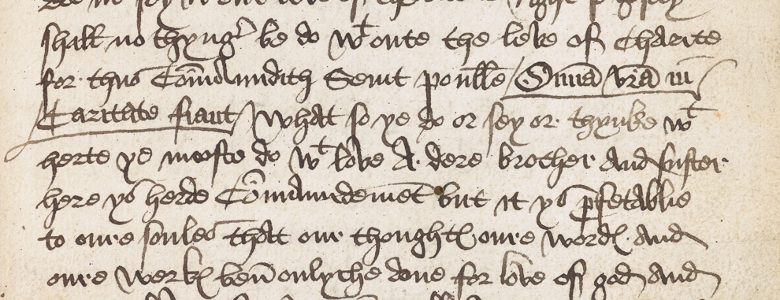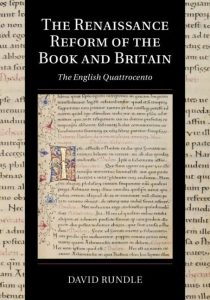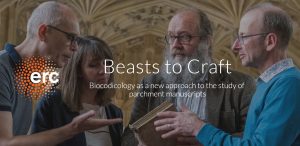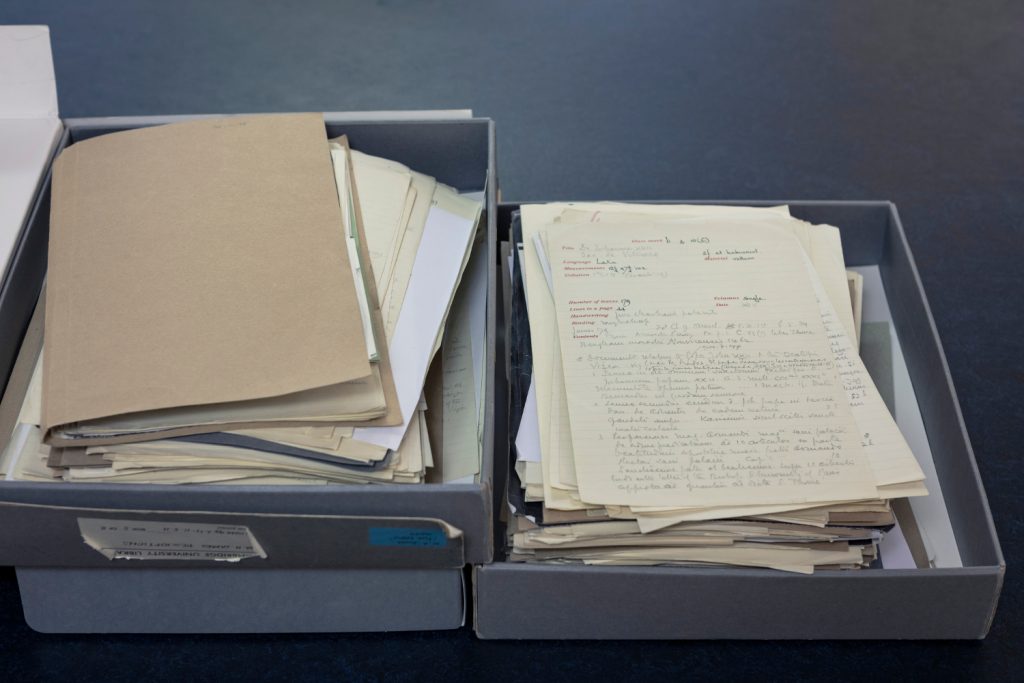
Medieval Palaeography Workshop Programme 2019
Every Easter Term, the University Library hosts the Cambridge Medieval Palaeography Workshop. Usually comprising a series of four lectures, presentations or roundtable discussions, the Workshop provides a forum for the discussion of medieval script and scribal practices, and the presentation, circulation and reception of texts in their medieval manuscript contexts.
Each session focuses on a particular issue, usually explored through one or more informal presentations and general discussion. All are welcome to attend; you do not have to be a palaographer in order to gain admission!
The programme for 2019 has now been announced – and a poster is available for download. The Workshop meetings take place 2-4pm in the Milstein Seminar Room at the University Library (ask at the Entrance Hall desk if you need directions).
The papers this year are as follows:
Friday 3 May 2019 ‘The Eloquent Page: Reflections on The Renaissance Reform of the Book and Britain’
Dr David Rundle (University of Kent)
David Rundle introduces his new monograph, The Renaissance Reform of the Book and Britain: The English Quattrocento, Cambridge Studies in Palaeography and Codicology (2019), highlighting its implications for the study of the late medieval palaeography.
Friday 10 May 2019 ‘Manuscripts as Molecular Archives’
Prof. Matthew Collins (Archaeology, Cambridge/University of Copenhagen)
This workshop provides an introduction to biocodicology, to the aims and methods of the ERC ‘Beasts to Craft’ project, and to the potential of biomolecular analysis to shed light upon the materials used in the production of medieval written artefacts and the wider economy that provided these resources.
Friday 17 May 2019 ‘Unpublished Descriptions of the Western Medieval Manuscripts at Cambridge University Library’
Dr James Freeman (Cambridge University Library)
James Freeman draws attention to the numerous largely unpublished cataloguing initiatives of the late nineteenth and twentieth centuries (by Charles Sayle, M.R. James, B.F.C. Atkinson, H.L. Pink and R.A.B. Mynors), the products of which remain largely unpublished but which are now being formally accessioned into the Library’s archives and made available for consultation by readers. As well as offering better information than the 19th-century catalogue, these descriptions and their fate prompts reflection upon the role of the librarian as cataloguer in the face of evolving standards of manuscript description.
Friday 24 May 2019 ‘Technologies of Written Communication: The Pragmatics of The Page, East and West’
Dr Imre Galambos (AMES), Prof. Máire Ni Mhaonaigh (ASNC) and Prof. Teresa Webber (History)
This workshop outlines and invites feedback on plans for a project to explore the development of scribal conventions in books produced between the ninth and thirteenth centuries in regions at either end of Eurasia. These two regions and the written artefacts produced in this period present a number of surface similarities which may permit frameworks for comparison. Understanding the differences as well as the similarities in the strategies adopted and transmitted by scribes, and shaped by their particular historical contexts and circumstances, both within and between the two regions may broaden and deepen our understanding of written culture and the dynamics of its development.



